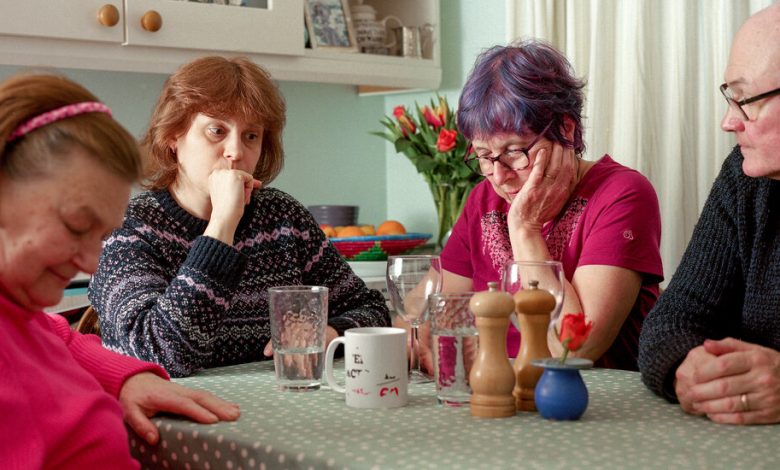‘My Soul Is in Ukraine’: Safe, but Lost, in Rural England

For almost two years Tania Drobot, a 53-year-old math teacher from Kyiv, Ukraine, has lived in the home of Fiona and David Ion, in Moorhaven, Devon, on the southwest coast of England.
They have questions about each other’s cooking. Tania likes steamed meatballs, considers a plate of hot vegetables a salad and uses a lot of sumac; Fiona and David disagree on all counts. They have different tastes in clothes. She likes faux leather; they like comfortable rainwear. And they navigate daily life without really sharing a common language, occasionally gesturing to be understood.
On a weekend in March I sat in Fiona and David’s kitchen while Fiona made a cup of tea and talked about their plans to renovate Tania’s bedroom when she leaves, though they don’t know when that will be.
Tania sat at the kitchen table, stroking one of the household’s tortoiseshell cats, unable to understand much of our conversation.

Tania, center, prepared a traditional Ukrainian Christmas meal for her sponsor Fiona, second from left, and Fiona’s grandchildren in early January 2023.
In March 2022, a few weeks after Russia crossed into Ukraine, the British government, like several other countries, asked members of the public to volunteer to host Ukrainians in their homes. It was one of the first times that ordinary Britons had been given the opportunity and the financial assistance to house refugees. Sponsors had to commit to hosting for at least six months and agree to a home inspection. By September, 72,000 households had applied.
